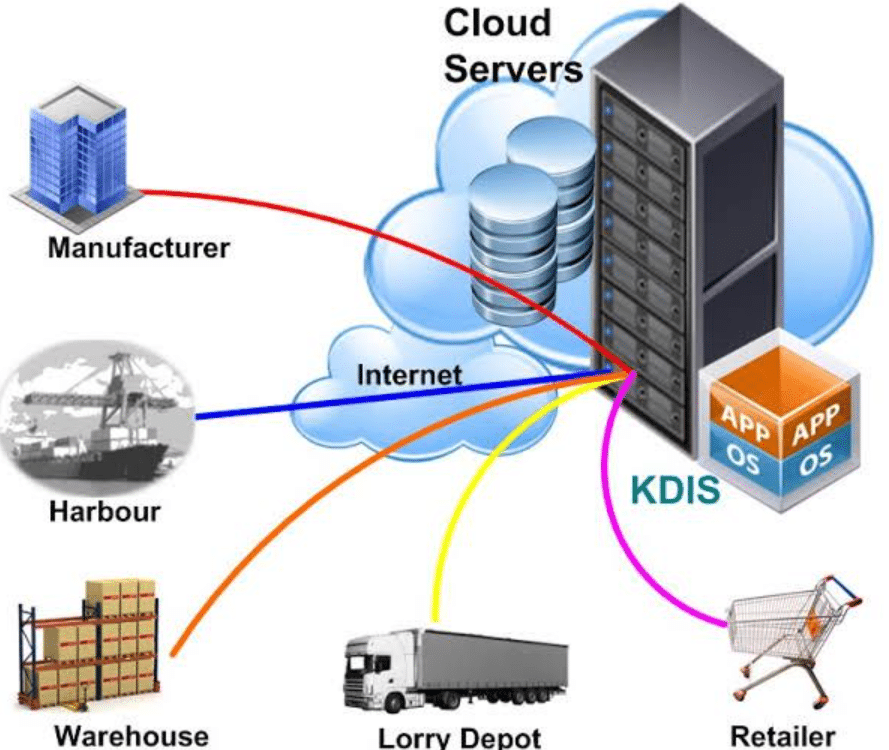Cloud-Based Servers – In the ever-evolving digital landscape, the demand for fast, reliable, and scalable computing infrastructure has never been greater. Traditional physical servers are rapidly being replaced by more agile and cost-effective solutions. Among these, cloud-based servers stand out as a transformative technology that is reshaping how businesses, developers, and individuals store data, run applications, and manage IT resources.
This article will take you through a comprehensive exploration of cloud-based servers—what they are, how they work, their benefits, use cases, and how they compare to traditional servers. Whether you’re new to cloud technology or considering migrating your infrastructure, this guide will help you understand the full potential of cloud-based servers.

What is a Cloud-Based Server?
A cloud-based server is a virtual server hosted on a cloud computing platform. Instead of running on a physical, on-premises machine, it operates on a network of remote servers that can be accessed over the internet. These virtual servers are housed in large data centers and can be deployed, configured, and scaled according to the user’s needs.
The key feature of a cloud-based server is virtualization, which allows multiple virtual machines (VMs) to run on a single physical machine. These VMs act like independent servers, offering the same performance, operating systems, and configuration options as physical servers—only with much greater flexibility.
Types of Cloud-Based Servers
There are several models of cloud-based servers to choose from, depending on your business needs:
1. Public Cloud Servers
These are hosted by third-party providers like Amazon Web Services (AWS), Microsoft Azure, and Google Cloud Platform (GCP). Resources are shared among multiple users (multi-tenancy), making them highly cost-effective and scalable.
2. Private Cloud Servers
These servers are dedicated to a single organization. While more expensive than public clouds, they offer greater control, security, and compliance—ideal for industries like finance and healthcare.
3. Hybrid Cloud Servers
A mix of public and private clouds, hybrid cloud servers provide flexibility by allowing data and applications to move between the two environments. This is beneficial for organizations needing both scalability and strict data governance.
Key Features of Cloud-Based Servers
1. On-Demand Scalability
One of the standout benefits of cloud servers is their ability to scale resources—CPU, RAM, storage, and bandwidth—instantly. This is ideal for businesses experiencing fluctuating workloads or seasonal traffic spikes.
2. Remote Accessibility
Cloud servers can be accessed from anywhere with an internet connection. This makes them ideal for remote work environments, global teams, and digital nomads.
3. High Availability and Redundancy
Cloud infrastructure is built to provide high uptime through redundancy and failover mechanisms. If one server fails, another takes over immediately, minimizing downtime.
4. Cost-Efficiency
Most cloud providers offer pay-as-you-go pricing models. You only pay for the resources you actually use, reducing waste and optimizing IT spending.
5. Security and Compliance
Modern cloud platforms offer enterprise-grade security features including data encryption, firewalls, intrusion detection systems, and compliance certifications like GDPR, HIPAA, and ISO 27001.
Advantages of Using Cloud-Based Servers
✅ Flexibility and Agility
Cloud servers allow organizations to adapt quickly to changes in demand. You can launch new environments, deploy applications, and test features without having to wait for hardware procurement or installations.
✅ Lower Capital Expenditure
There’s no need for purchasing expensive hardware or maintaining on-site data centers. This significantly reduces capital expenditure and shifts IT spending to a more manageable operational cost model.
✅ Disaster Recovery and Backup
Most cloud platforms include automated backup and disaster recovery options, helping businesses ensure business continuity in the event of cyber-attacks, hardware failures, or natural disasters.
✅ Environmentally Friendly
By optimizing resource usage and reducing the need for physical infrastructure, cloud computing contributes to more sustainable IT operations. Data centers are often designed with energy efficiency in mind.
Common Use Cases for Cloud-Based Servers
1. Web Hosting
Cloud servers offer a reliable and scalable solution for hosting websites and web applications. With load balancing and automatic scaling, they ensure performance even during high traffic periods.
2. Software as a Service (SaaS)
Cloud servers are the backbone of many SaaS platforms. Companies can deploy software in the cloud and offer it to customers via subscriptions, reducing the need for local installation.
3. E-Commerce Platforms
Online stores benefit from the cloud’s ability to handle variable loads, secure payment processing, and deliver a smooth user experience across different devices and regions.
4. Data Storage and Backup
Cloud servers are widely used for storing large volumes of data securely. Features like versioning, encryption, and global accessibility make them ideal for document management and archival purposes.
5. Development and Testing
Developers use cloud servers to quickly spin up testing environments, collaborate on projects, and automate deployment pipelines. This enhances productivity and reduces development cycle times.
Popular Cloud Server Providers
Here are some of the top providers of cloud-based server infrastructure:
1. Amazon Web Services (AWS)
A market leader with a vast range of services including EC2 (Elastic Compute Cloud), S3 storage, Lambda functions, and more.
2. Microsoft Azure
Preferred by many enterprises due to its integration with Windows Server, Office 365, and enterprise identity solutions.
3. Google Cloud Platform (GCP)
Offers advanced machine learning, data analytics, and containerization tools like Kubernetes Engine.
4. DigitalOcean
Popular with startups and developers for its simplicity, transparent pricing, and developer-friendly interface.
5. Linode & Vultr
Affordable and easy-to-use alternatives for small businesses and tech-savvy users who want more control over their virtual machines.
Cloud Server vs Traditional Server
| Feature | Cloud-Based Server | Traditional Physical Server |
|---|---|---|
| Scalability | Highly scalable on demand | Limited by hardware capacity |
| Cost | Pay-as-you-go, lower upfront cost | High upfront investment |
| Maintenance | Managed by provider | Requires in-house IT team |
| Setup Time | Minutes | Hours to days |
| Flexibility | High (can deploy anywhere) | Low (location-bound) |
| Backup & Recovery | Built-in features | Requires manual setup |
Challenges and Considerations
Despite the numerous advantages, cloud-based servers are not without challenges:
❌ Data Privacy Concerns
Storing data on third-party servers can raise concerns about privacy and compliance, especially in regulated industries.
❌ Vendor Lock-In
Migrating between cloud platforms can be complex and costly due to differences in architecture and APIs.
❌ Downtime Risks
Though rare, cloud outages do occur. Businesses should have redundancy and multi-cloud strategies to mitigate risks.
❌ Learning Curve
Cloud platforms can be complex for beginners. Proper training and documentation are essential to fully utilize cloud features securely.
Future Trends in Cloud-Based Servers
As cloud technology matures, we are witnessing several emerging trends:
🚀 Edge Computing
Moving computing resources closer to the data source reduces latency and enables real-time processing for IoT, gaming, and autonomous vehicles.
🔐 Zero Trust Security
Cloud providers are adopting zero-trust models that authenticate every user and device before granting access—boosting security for remote work.
🧠 AI and Machine Learning Integration
Cloud servers now power large-scale AI models, enabling smarter applications and deeper data analytics.
🪙 Serverless Architectures
Developers are increasingly building applications without managing servers directly, focusing only on writing code while the cloud handles the rest.
Conclusion
Cloud-based servers have revolutionized the way businesses manage IT infrastructure. They offer a perfect balance of performance, cost-efficiency, scalability, and security—enabling businesses of all sizes to operate smarter and faster.
From hosting websites and running apps to powering AI models and supporting global teams, cloud servers are the foundation of today’s digital economy. As the technology evolves, they will continue to unlock new opportunities and redefine what’s possible in the world of computing.
Final Thought: Embracing cloud-based servers isn’t just a technological upgrade—it’s a strategic move towards future-proofing your operations in a world that demands agility, resilience, and innovation.
